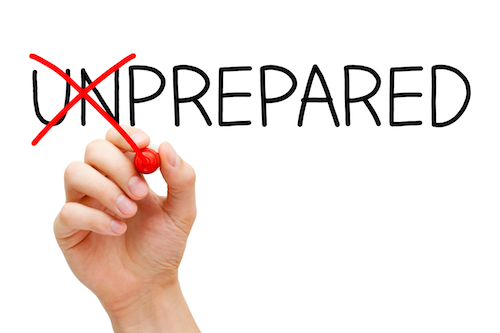I recently had a significant scare with my 73-year-old father when his life nearly came to an end. I recognize we are mortals, but this particular scare was abrupt. After we got past the initial trauma and remembered to breathe, my brain took over from my heart. I asked myself what if he had passed? Is everything clear and in place so that his wishes are followed? Am I the executor for his estate? Maybe someone else is the executor, if so who? What does his estate even include?
My dad has been divorced from my mom for 20 years and lives alone in the house I grew up in. I love my dad and will always be there for him. It’s clear to me now, however, that I really didn’t know anything about his plans, needs, and wishes.
Here at Capstone, we make it a point to talk with clients about estate planning. While we are not attorneys, we do ask if the client has a will and/or a trust (if needed) along with reviewing and discussing the benefits of designating beneficiaries on various account types. I do this with clients all the time, but it is more difficult to do this with my father. When I bring it up he usually responds with a deflecting joke or tells me that he’s in perfect health and he will live a long time. At that point I usually let the conversation fade. There are times I worry that if I bring it up I will sound greedy, interested more in an inheritance than his wellbeing.
After the scare, I pushed past my fears and was able to open a space for us to have a conversation about the details of his estate. While I am thankful for the opportunity to talk openly about this uncomfortable subject, I know we should have had this conversation some time ago. I see now how important it is to find the courage to broach the topic out of love and respect for one another. I learned that it’s best to begin the conversation regarding end-of-life wishes while everyone is healthy.
The lack of planning and clarity breeds anxiety and while the discussion surrounding death is far from easy, having an open, honest, and loving conversation guides us through the necessary preparations, and brings a sense of calm. Knowing Dad’s deepest wishes and fears have been heard and will be honored has brought peace to us both.
I know I’m not the first person who has been jolted into facing the mortality of a parent or loved one. If you’ve had similar experiences I’d love to hear your story and learn from your thoughts and insights. Additionally, if you would like to review and discuss designating beneficiaries on your Capstone accounts, please give me a call.
~Hillary
Two tips to help make this difficult conversation as productive and positive as possible:
- Try not to approach the conversation with preconceived ideas about what your loved ones might say or how they might react. “Dad, I just wanted to have a talk about what you want. Let’s just start with what is important to you.”
- Approach the conversation with an attitude of listening not telling. “Dad, have you thought about what you want to do if you needed more help?” as opposed to “We really need to talk about a plan if you get sick.”
See more tips and advice in AARP’s Free Planning Guide for Families.

